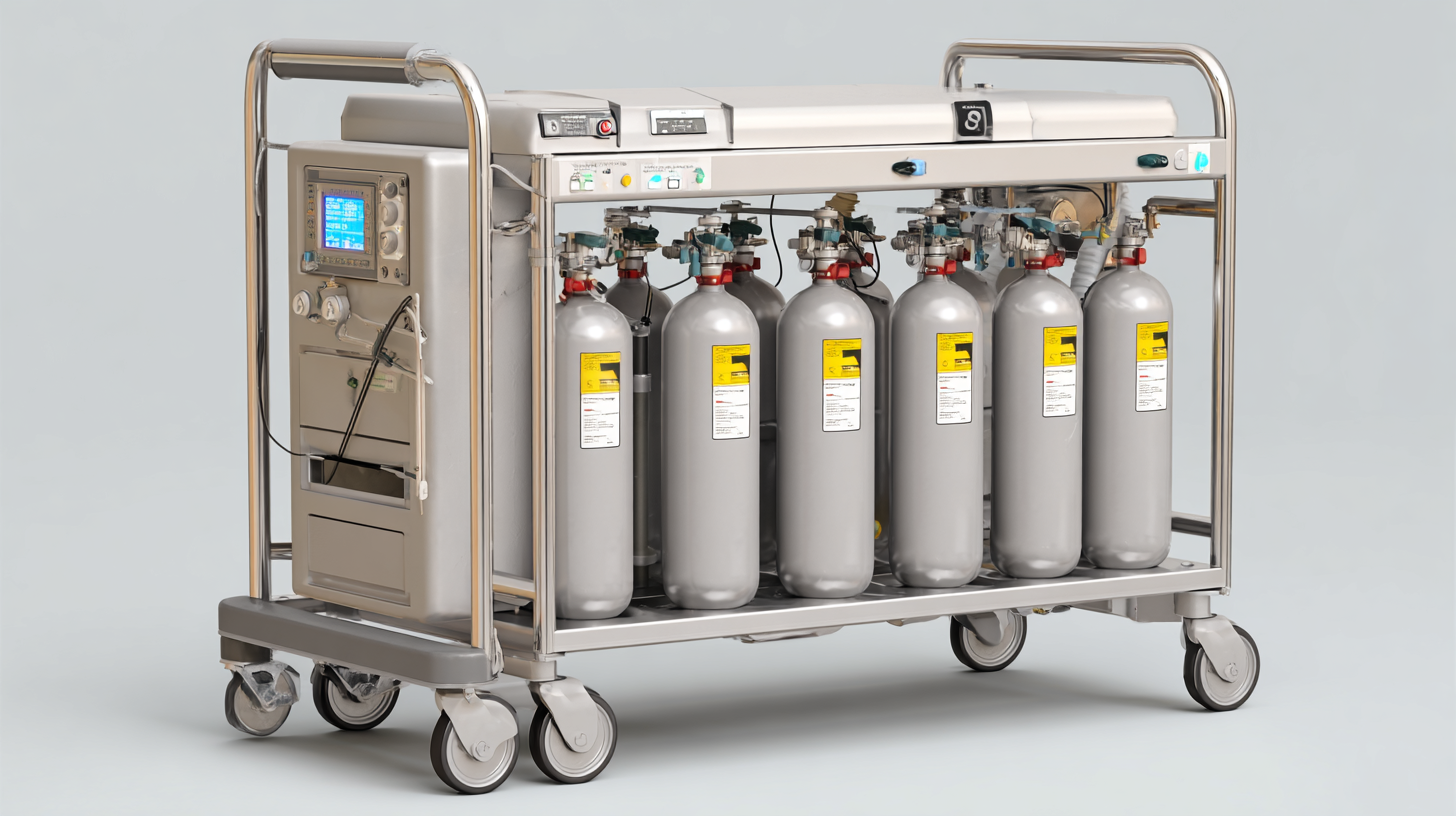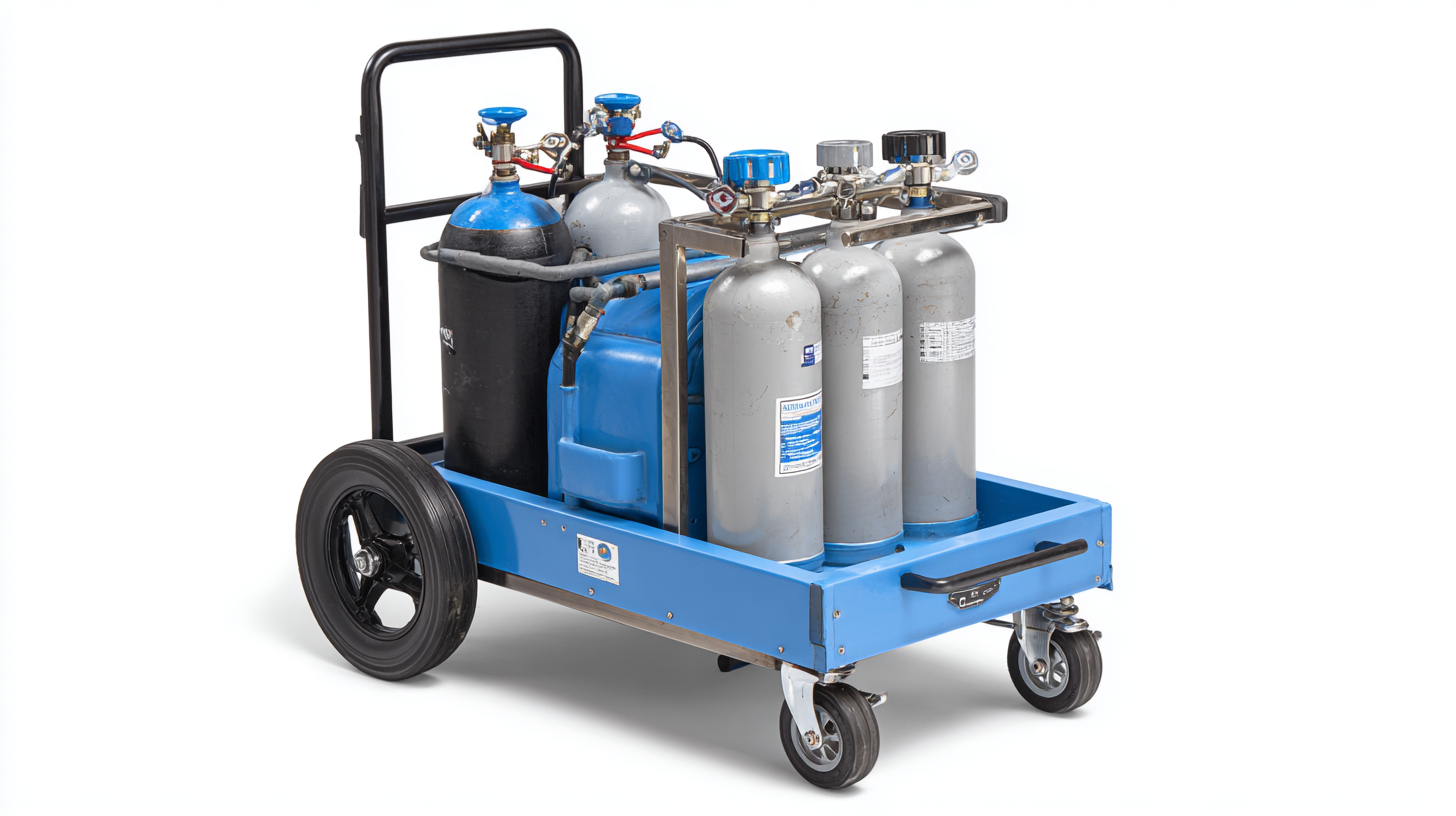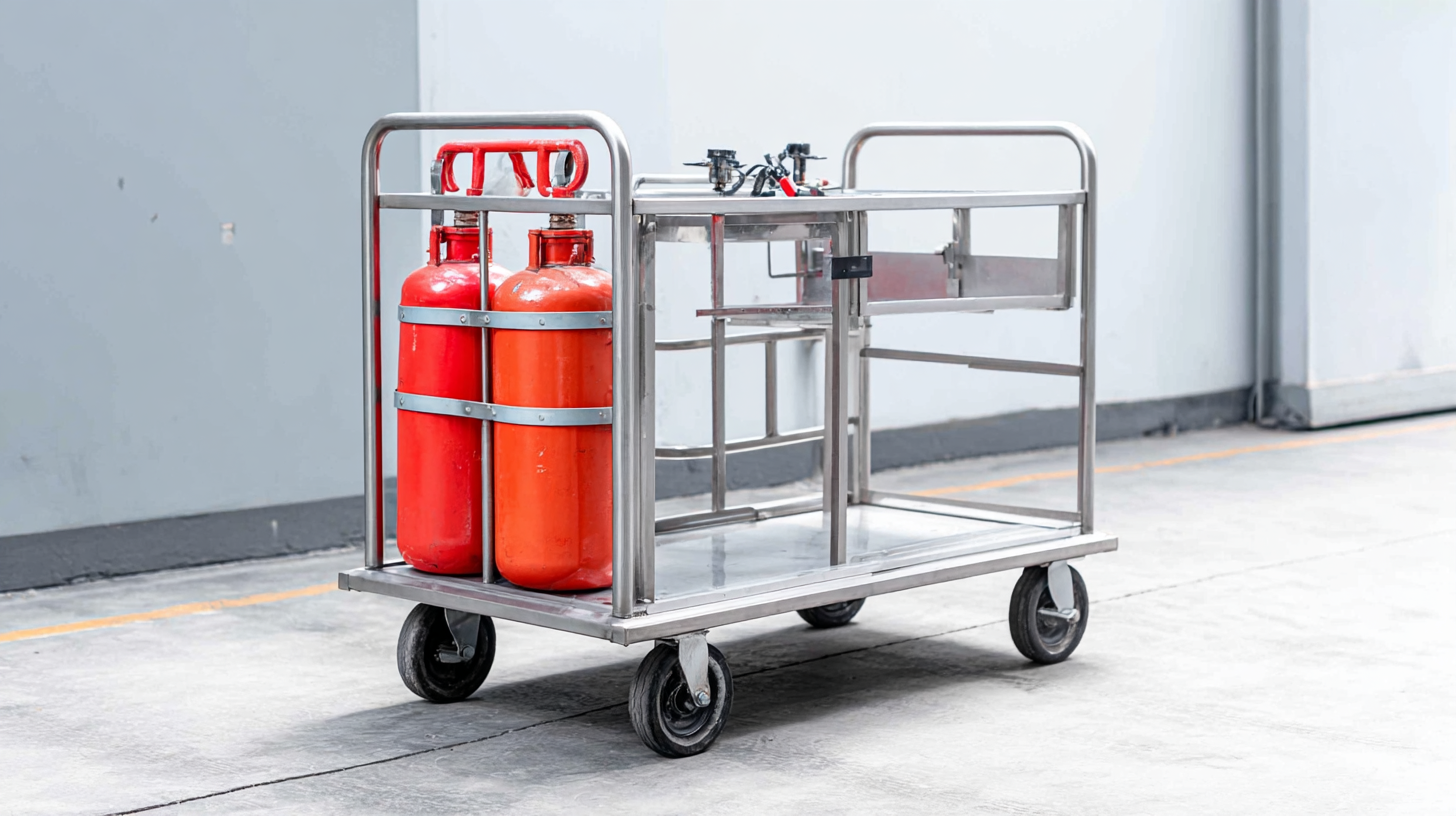Finding the Right Oxygen Tank Cart Manufacturer A Complete Guide to Quality and Comparison
In the rapidly evolving healthcare industry, the importance of efficient and reliable medical equipment cannot be overstated. Among these, the oxygen tank cart plays a pivotal role, enabling safe and convenient transportation of oxygen tanks for patients in need. According to recent reports from the Global Healthcare Equipment Market, the demand for oxygen-related healthcare products is projected to grow at a CAGR of 7.5% over the next five years, driven by an increasing prevalence of respiratory diseases and aging populations.

Selecting the right oxygen tank cart manufacturer is crucial not only for ensuring product quality but also for maintaining operational efficiency in medical facilities. This guide aims to provide comprehensive insights and comparisons to help healthcare professionals identify the most suitable manufacturers, ensuring that the oxygen tank carts they use meet stringent safety and reliability standards.
Key Considerations When Choosing an Oxygen Tank Cart Manufacturer
When choosing an oxygen tank cart manufacturer, several key considerations can greatly impact your decision. First, assess the manufacturer’s reputation within the industry. Look for companies that have a proven track record of producing high-quality, durable products that meet industry standards. Customer reviews and testimonials can provide valuable insights into the reliability and performance of the carts. It's also beneficial to research the manufacturer's history and experience, as well-established companies often have better expertise in design and engineering.
Another critical factor is the variety and customization options offered by the manufacturer. Different industries and applications may require specific features or dimensions for oxygen tank carts. Ensure that the manufacturer can accommodate your unique needs, whether it’s additional safety features, specific weight capacities, or personalized branding options. Additionally, evaluate their customer service and support systems; a manufacturer that offers comprehensive post-purchase support can enhance your experience and ensure that any issues are promptly addressed. Ultimately, a well-rounded assessment of these considerations will lead you to the right oxygen tank cart manufacturer for your needs.
Top Features of Quality Oxygen Tank Carts You Should Look For
When searching for a quality oxygen tank cart, it’s essential to focus on key features that ensure safety, portability, and usability. One of the top features to consider is the construction material. Look for carts made from high-quality, lightweight materials such as aluminum or heavy-duty steel, which provide both durability and ease of movement. Additionally, an ergonomic design can greatly enhance user experience, allowing for smooth handling and reducing strain during transportation.
Another critical aspect is the weight capacity of the cart. Ensure that the cart can safely support the weight of your specific oxygen tanks. Adequate load capacity is crucial for stability and safety during use. Furthermore, check for adjustable straps or secure fastening mechanisms that keep the tank in place.
Tip: Always assess the wheel design and size; larger, swivel wheels can maneuver easily over various terrains, enhancing mobility. Also, consider any additional features such as foldable designs for easy storage and integrated storage compartments for accessories, which add functionality and convenience to your oxygen tank cart.

Comparative Analysis: Budget-Friendly vs. Premium Oxygen Tank Carts
When selecting an oxygen tank cart, one must critically analyze the differences between budget-friendly and premium options. Budget-friendly carts can be appealing due to their lower upfront costs; however, they often compromise on materials, durability, and features that ensure safety and functionality. According to a recent industry report, nearly 40% of budget models fail rigorous safety evaluations, leading to potential risks during usage.
In contrast, premium oxygen tank carts typically use high-grade materials and state-of-the-art design, ensuring longevity and reliability. A comparative analysis revealed that premium carts often offer enhanced mobility features, such as larger wheels and better weight distribution, resulting in a 30% increase in user satisfaction during field operations.
Furthermore, while the initial investment in a premium model may be higher, the total cost of ownership—factoring in repairs, replacements, and user efficiency—demonstrates substantial long-term savings. As a result, making an informed choice between these two options is crucial for ensuring both safety and operational efficiency.
Evaluating Manufacturer Reputation and Customer Reviews
When searching for the right oxygen tank cart manufacturer, evaluating manufacturer reputation and customer reviews is paramount. A recent industry report highlights that nearly 70% of consumers rely on online reviews to make purchasing decisions. Thus, a manufacturer’s credibility can significantly impact your choice. Look for manufacturers with a proven track record based on customer feedback—those with consistent positive reviews are likely to provide quality products.
Tip: Before making a final decision, consider reaching out to existing customers to gather firsthand insights about their experience with the manufacturer. This can provide a clearer picture of product performance and customer service.
Additionally, reputable manufacturers often provide detailed specifications and certifications of their products. According to the American National Standards Institute (ANSI), compliance with industry standards is critical for safety and efficiency. Manufacturers that openly share this information, coupled with strong client testimonials, are generally more trustworthy.
Tip: Utilize platforms like the Better Business Bureau (BBB) to check ratings and complaints against manufacturers. A reliable manufacturer will address concerns and demonstrate a commitment to customer satisfaction.

Essential Safety Standards for Oxygen Tank Cart Production
When choosing an oxygen tank cart manufacturer, it’s crucial to prioritize safety standards in production. The American National Standards Institute (ANSI) and the Compressed Gas Association (CGA) emphasize the importance of adhering to rigorous safety protocols to ensure that oxygen tank carts are durable, reliable, and user-friendly. Reports indicate that nearly 30% of oxygen-related incidents are linked to equipment failure, underlining the necessity of quality manufacturing practices.
To enhance safety, manufacturers should conform to specific guidelines such as proper materials selection, effective welding techniques, and thorough testing procedures. It's advisable to look for certifications like ISO 9001, which signals a commitment to quality management systems. Furthermore, consider manufacturers that regularly undergo third-party audits to ensure ongoing compliance with industry standards.
Tips: When assessing potential manufacturers, inquire about their safety certifications and quality assurance measures. Additionally, review customer testimonials and case studies to understand the long-term performance of their products. This research will not only protect users from potential hazards but also ensure that the oxygen tank carts meet stringent industry requirements.
